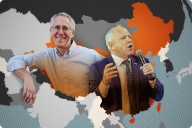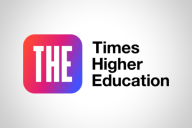You have /5 articles left.
Sign up for a free account or log in.
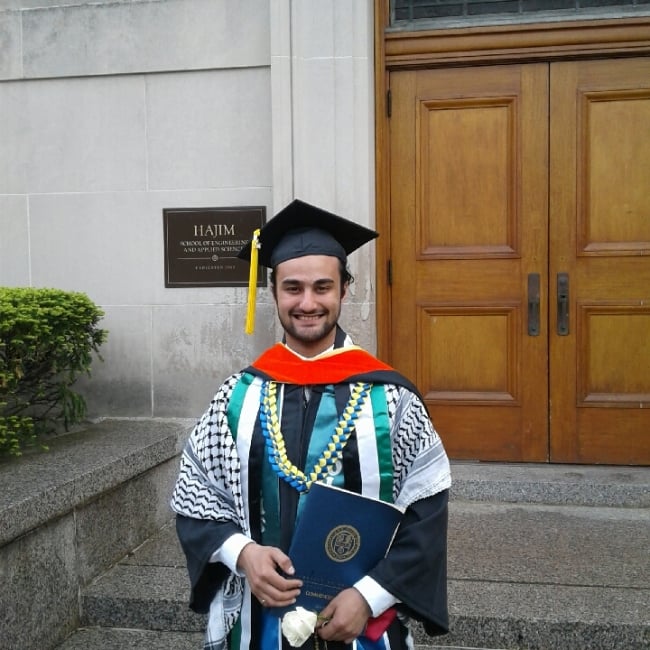
Ibrahim Mohammad
Courtesy of AMIDEAST
Growing up as a Palestinian refugee in Lebanon, Ibrahim Mohammad did what he could to help his father, who sold juice from a cart, support his family.
“I started working when I was 11,” Mohammad says. “Anything you can think about that I could do I pretty much did: carpenter, welder, mechanic, plumber, painter, electrician, barber, worked at stores -- anything I could do to make money.”
Mohammad was buying plastic cups to help his father sell juice when he got a call asking him to interview for the Hope Fund, a program run by the American nonprofit AMIDEAST that helps Palestinians apply to U.S. colleges and provides scholarship funding to top off institutional awards.
“It was a difficult situation for me, because on the one hand, I didn’t want to leave my family and I felt responsible for them, but at the same time I realized from working on the streets for so long that when an opportunity comes, you can’t really waste it,” Mohammad says.
He figured he would tell his father about it and his father would say no, and that would be the end of it. But instead his father skipped work to come with him to the interview.
“Me and my dad never really skip work, because if we don’t work, we literally don’t eat. Unless we’re physically unable to stand up, we’re going to go, so to me it meant a lot that he took the initiative to do that,” Mohammad says.
Mohammad won a full scholarship to the University of Rochester, where he completed his undergraduate degree in 2017. He stayed on and is now pursuing a Ph.D. in mechanical engineering.
The Hope Fund has been in the news after one of its award winners -- Harvard University student Ismail Ajjawi --was denied entry to the U.S., reportedly after he was questioned about his friends' social media postings (Ajjawi was permitted to enter on his second try after intervention from Harvard, and arrived in Boston Sept. 2, just in time to start classes). But while the story of Ajjawi's visa denial became headline news, there are many more stories to tell about the journeys he and his fellow Hope Fund recipients took to get to their U.S. campuses.
“This year we are supporting and supplementing the scholarships of 54 undergraduate students -- a record number,” Theodore H. Kattouf, AMIDEAST’s president and CEO, wrote in a new edition of the Hope Fund program newsletter. “It’s no small feat that refugees from camps and other difficult circumstances, including in Gaza, are going to Stanford, Smith, Hamilton, Stillman, Swarthmore, Lehigh, Roanoke and several other institutions of higher learning. A young woman from Bedawwi Camp in North Lebanon will be a freshman studying physics at Duke University; another young man from a camp in Lebanon will be at Bridgewater College.”
The Hope Fund program, which students apply for in the 11th grade, has both a college advising and a scholarship component.
“We gave them an opportunity to develop their talent,” said Kattouf. “They're diamonds in the rough, and they need a little polishing. They need to know, how do I go about making the case to a U.S. college or university, whether it’s Harvard or Bridgewater in Virginia, that I’m deserving of a very valuable scholarship?”
The students AMIDEAST supports earn generous scholarships from their colleges -- full rides or close to it -- while AMIDEAST provides supplemental funding for any remaining tuition beyond what the college or the student's family can cover, as well as for things like books, travel and insurance. AMIDEAST’s goal is to provide up to $12,000 in funding per Hope Fund student per year.
Fahim Qubain, a Palestinian American Quaker and the author of four books on the Middle East, started the Hope Fund in 2000 with his wife, Nancy. They were inspired by an article by the journalist Geraldine Brooks about a Palestinian teen she managed to chase down for an interview after he threw a stone at her car. The boy, Raed, dreamed of being a doctor. Brooks ended up paying for his education.
The Qubains asked AMIDEAST to recruit students for the program, which the organization agreed to do for free. In 2015, after Fahim’s death, full control of the program transferred to AMIDEAST, which has four offices in the West Bank and one in Gaza City.
“We’re in a pretty good position to talent scout, working with PA [Palestinian Authority] schools and working with UNWRA,” Kattouf said. UNWRA refers to the United Nations Relief and Works Agency for Palestine Refugees in the Near East, which among other things operates primary and secondary schools providing free education for refugee children. Ajjawi, the Harvard student who was initially denied entry to the U.S., graduated last spring from a UNWRA high school in El Buss refugee camp, south of Tyre, Lebanon.
Alumni who benefited from the Hope Fund say the program was life changing.
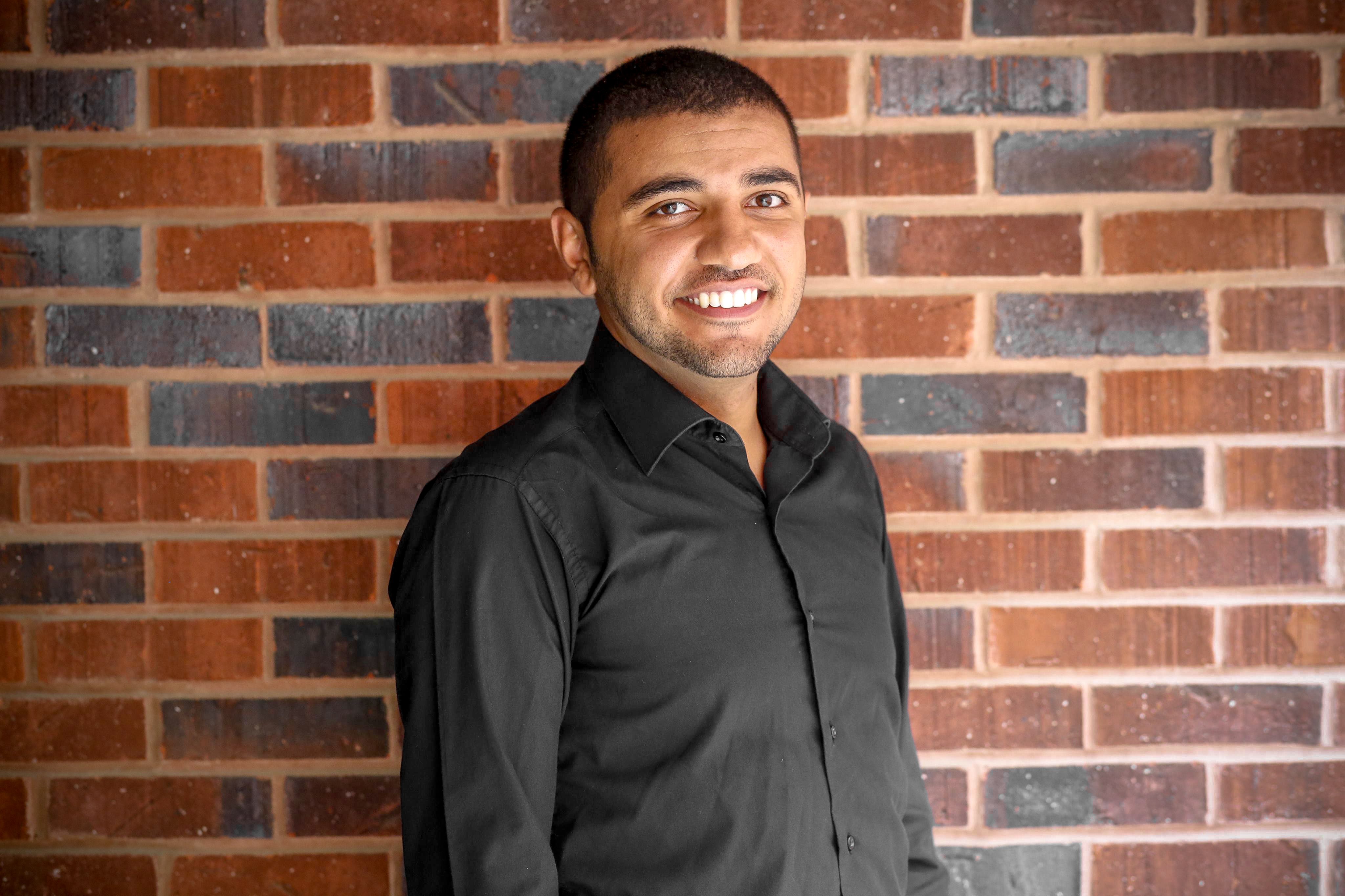 “There’s no way I would have been able to come without the support of the Hope Fund,” said Mohammed Alhammami, who studied with Hope Fund support at Franklin & Marshall College, in Lancaster, Pa., and now is in a master’s program at Georgetown University studying Arab studies with a concentration in development.
“There’s no way I would have been able to come without the support of the Hope Fund,” said Mohammed Alhammami, who studied with Hope Fund support at Franklin & Marshall College, in Lancaster, Pa., and now is in a master’s program at Georgetown University studying Arab studies with a concentration in development.
Alhammami comes from the center of the Gaza Strip. His father is a laborer, and his mother is a middle school Arabic teacher.
“To begin with, I didn’t know that I could apply to U.S. universities,” Alhammami said. “I didn’t know I was capable of doing so; the Hope Fund gave me that knowledge.” Beyond that, he said, “there was no way for me to afford coming to the States on my own.”
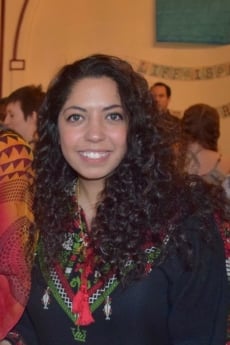 “Growing up in Gaza, you don’t really have that much of a chance to really explore the world or know what’s out there -- or even explore who you are as a person and what you’re capable of,” said Ghada Tafesh, an alumna of the program who studied at Wilson College, in Chambersburg, Pa. “AMIDEAST really fostered that curiosity that I had and helped me and equipped me with skills.” Tafesh is now getting her Ph.D. in biodefense and infectious diseases at George Washington University. Her research focuses on the Zika virus.
“Growing up in Gaza, you don’t really have that much of a chance to really explore the world or know what’s out there -- or even explore who you are as a person and what you’re capable of,” said Ghada Tafesh, an alumna of the program who studied at Wilson College, in Chambersburg, Pa. “AMIDEAST really fostered that curiosity that I had and helped me and equipped me with skills.” Tafesh is now getting her Ph.D. in biodefense and infectious diseases at George Washington University. Her research focuses on the Zika virus.
Mohammad, the Rochester Ph.D. student, is studying the fluid dynamics of liquid metal batteries, a technology that has implications for the storage of clean energy on the electrical grid. Another project he's working on looks at ways to reduce electricity usage in aluminum production.
He carefully budgets his graduate student stipend so he can send money home to support his family, now that his father has stopped working.
“The opportunity that the Hope Fund gives to Palestinian students was something that genuinely changed my life and my family’s life for the better,” Mohammad said. “It gave me an opportunity I didn’t even expect or dream about.”






